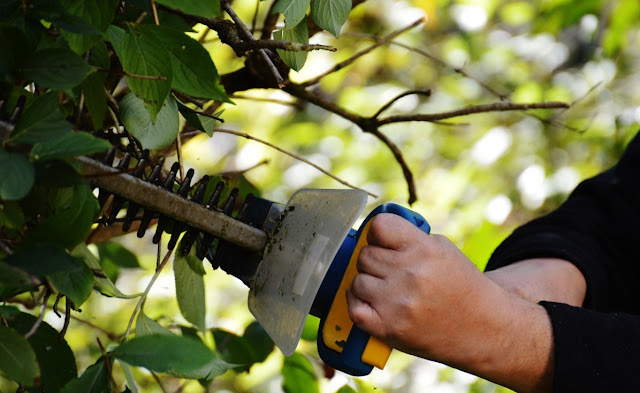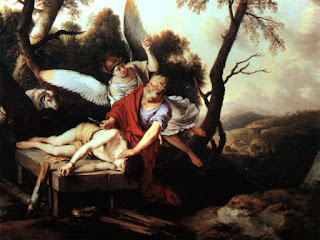Choices Pt. 8: The Choice to Hope
Merry
Christmas! I don't know about you, but I
grew up loving Christmas. The lights,
the songs, the festivities, the snow (yes, it was the north!) and of course,
the presents – gotta love the presents.
And every Christmas Eve my brother and I would gather around with my
parents and read about the baby Jesus, born on Christmas – compete with small
donkey clip-clopping to Bethlehem, bright angels bursting through the night sky
to sing to shepherds, and Joseph and Mary, full of wonder. As I’d sit there listening, colorfully
decorated house, family all around, the world seemed so bright and full of
hope. It was easy to see why Christmas
is known as the season of hope.
But my
“hope” seems to have gotten a little more… realistic… over time. I’ve come to realize that Christmas brings out
not only the best but also the worst in people – including fights over mall
parking spaces and gaudy commercialism.
The joy of receiving presents gets superseded by the dread of plowing
through a list of things to buy for people, fighting the craziness to find it,
then paying the bill for it all! I also
have seen that Christmas doesn’t bring happy, hopeful thoughts for everyone. Even for some of you, the holidays may not
bring just joy but pain – the sorrow of loved ones no longer present, the
reminders of hopes and dreams unrealized.
Yes, the fairy tale-like spell of Christmas may get broken over
time. Is there more here than childish
optimism? Is there still reason to hope?
Well, I’d
like to propose that choosing hope is not just the “reason for the season,” but
the story of our world’s history. Yes, our
world started as a beautiful place – more perfect than any Christmas fairy
tale. There was no need to hope, it was
all reality! But then there was the
fall. We chose to leave God. The fairy tale was shattered. But right there we find the first promise of
hope. The promise of a redeemer. A child to who would crush the deceiver and
restore (Genesis 3). And hope was born
with the promise of this baby come.
And so
hope was passed on through the ages, from patriarch, to patriarch, all the way
down to a guy called Abraham who’s infertility threatened to ruin the
promise. How could he hope to be the
father of many nations through which the promise would come (Gen. 17)? He was old and as good as dead for
child-bearing! It only makes sense to a
God “who gives life to the dead and calls those things which do not exist as
though they did” (Romans 4:17). This is
the God that Abraham “contrary to hope, in hope believed.” He chose to hope. Maybe somehow he knew that when God speaks,
things are created. God doesn’t just
call “things which do not exist as though they did” because He lies. He can call them that because when He says
it, they become it.
Hebrews
6:18, speaking of God’s promise to Abraham again, says that it is based on two
immutable things: 1) God promised. 2) It
is impossible for God to lie. Thus, it
says we “might have strong consolation, who have fled for refuge to lay hold of
the hope set before us.” This is not
just any hope, but a “hope we have as an anchor of the soul, but sure and
steadfast” (vs. 19). And Abraham was not
disappointed. His baby was born.
So down
through the centuries we go, till finally a virgin named Mary was told that her
son was the end of the line – the realization of the hope. Mary rejoiced saying, “My soul magnifies the
Lord… He has helped His servant Israel, in remembrance of His mercy, as He
spoke to our fathers, to Abraham and to his seed forever” (Luke 1:46,
54-55). Yes, Abraham’s hope became humanity’s
reality that Christmas night.
But now over
2,000 years have passed since the promised baby. And we’re still here. Where is the hope now? Romans 8:24 tells us,
“For we were saved in this hope, but hope that is seen is not hope; for why
does one still hope for what he sees?” Yes,
the baby was born, but not all of our hope has been realized. We haven’t seen it all yet. What is this great hope that we can’t see but
were saved in? If we back up to verse
23, we find that it’s talking about the “adoption” and the redemption. And to understand this we have to back up
even more to verse 15: “For you did not receive the spirit of bondage again to
fear, but you received the Spirit of adoption by whom we cry out, ‘Abba,
Father.’”
Yes, we
still have hope, because we have been adopted - redeemed. And while it’s as
real as anything we can touch, taste, or see, we can’t touch, taste, or see
it. We’re adopted, but we’re still stuck
here, in our mortal bodies, in a messed up world, waiting… in hope. But this is where the Christmas season ties
in. At this time of year, we celebrate
God, the creator of the universe, grafting himself into human flesh. Not because we chose Him. Not because we asked Him to. Not because we adopted Him. Instead, He simply came, of His own choice,
in hope. Hope that by inserting Himself
into our family, we would someday choose to become part of His.
It’s
crazy, really. Hope started with a
promised child to a fallen race. The
hope was passed on, even though seeming impossibility. Then hope was miraculously incarnated and
born a baby. God – a human –
forever. All so we could have the
chance to be born again – adopted – a family restored.
“Heaven
and earth are no wider apart today than when shepherds listened to the angels'
song” (Desire of Ages p. 48). I believe
it’s more than a Christmas fairy tale. No,
the restoration has not fully been realized.
This Christmas there will still be pain, there will still be death, there
will still be crowded shopping malls... It may not be forever, but it is now. Yet even in this dark world, the God who came
still comes. And He is coming
again. The question is, will we choose
Him? Will we choose to allow HIS hope to be realized? Jesus, I choose to hope this Christmas.


Comments